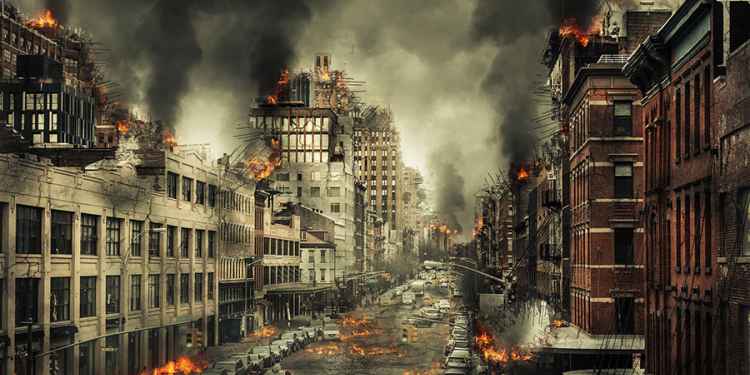
Photo: pixabay.com

Photo: pixabay.com
This page is more than six years old and was last updated in February 2020.
We're not saying the end is nye, but there's currently a lot of talk about civil unrest, food shortages and even a potential lack of medical supplies in the event that the UK leaves the European Union without a deal. While these claims are probably nothing more than exaggeration, and perhaps even a bit of fear-mongering, it pays to be prepared in any event so that you can at least survive by yourself for a while.
Having a sensible stock of supplies and a plan of action in the event of local or national emergencies isn't a bad idea, and you never know when you might need such supplies. Every winter the newspapers run stories about fuel shortages. What would you do if you found yourself with no way to heat your home or cook food in the middle of a cold snap like 2018's "Beast From The East?"
The risk doesn't just come from cold winters and post-Brexit civil unrest, there's always the risk of freak weather conditions, hackers taking out vital infrastructure, or solar flares knocking out the power grid. We're not talking surviving a complete collapse of western society or a longterm period of shortages, if we have an alien or zombie invasion or global nuclear war you're pretty much on your own.
Proving that the old boy scouts motto "be prepared" is still a good mantra to live by, the Swedish government has recently sent a 20-page public information pamphlet to all 4.8 million homes in the country with advice on how people can secure basic needs such as food, water and heat in the event of war or a crisis situation.
Sweden isn't expecting an attack any time soon, but the leaflet advises citizens to think about how to cope if there basic supplies were cut off and cash machines, mobile phones and the internet stopped working. One detailed page covers off "home preparedness tips" with advice like stocking up on bottles of water, warm clothing, sleeping bags, and long-life food.
What should you stockpile in case of a no deal Brexit?
It's always a good idea to have a small stash of emergency non-perishable food that can be prepared quickly, requires little water or can be eaten without preparation. The best way to stockpile is to buy extra as part of your weekly shop to avoid panic buying. Keep an eye on dates and use up and replace older food so that your stockpile is always ready. It could be useful in the event of a power cut, snowy weather or many other situations. If you have pets remember to consider their needs too, ensure you always have a backup of dried food available.
Potatoes, cabbage, carrots and eggs are great to have in the short term, they are fairly long life and easy to cook. It's also useful to have bread with a long shelf-life like tortillas, hard bread, crackers and rusks. A lot of cheese spreads and soft cheeses which come in tubes or vacuum sealed tubs don't actually need to be kept refrigerated until opened, these can be easy to store and will last if you can keep them cool once opened.
Keep a stash of quick-cook pasta, rice, and instant snacks like noodles or mashed potatoes.
Canned fruit, vegetables and beans are an obvious choice, these products have a best before date of months, if not years. Chopped tomatoes are a useful item to have as they can be mixed with pasta and other quick meals. You may also want to keep a backup of canned and jarred pasta sauces, curries, ravioli, soups, and ready-to-eat fish and meats like mackerel, sardines, tuna, corned beef or spam.
If you're unable to keep food chilled then you might find long-life UHT milk useful, this can be stored at room temperature until opened. Don't forget that storing food outdoors is an option during the winter when temperatures may well be as low as your refrigerator.
Clean drinking water is essential, you'll need to have at least three litres per adult per day. If you are uncertain about its quality, you can boil the water in order to purify it. Make sure you have some bottles of water as part of your stockpile. If you have room, you could also consider jerry cans, ideally with a tap, to collect water in. Keep your water reserve stored in a cool, dark place.
What emergency essentials should you always have in your store?
You never know when or where a crisis situation may occur, you could end up stuck on a road just a few miles from your home on a snowy night. Depending on the conditions you may not be able to leave your car and walk, so when thinking about the essentials you'll need in the event of some kind of incident, you should not only consider what you need at home, but also consider having some kind of emergency kit or box that you can keep with you or in your car.
A car kit might include warm clothes, blankets, something to eat and drink. Plus, make sure you have enough fuel to keep your engine running for at least a few minutes every hour. You could also consider keeping waterproof clothing and sensible footwear in your car.
Basic essentials that you should think about keeping in, either your home or mobile kit, include a small gas or spirit stove and fuel, cash in small denominations, a first aid kit, basic tools, wet wipes, hand sanitiser, toiletries and sanitary products, as well as a small fuel can in order to get patrol or diesel should you need to.
In case of power cuts, it's a good idea to have a stock of torches and head torches, as well as candles, tea lights and matches. We currently import a large percentage of our electricity from France and the Netherlands, who knows what the state of this deal might be post-Brexit.
In the event of a major incident, you'll need to make sure that you are able to stay up to date with news and information from the authorities. So, ensure you have a battery-powered radio, a list of important telephone numbers written down on paper.
Don't forget, you'll need to keep these devices going so make sure you have plenty of spare batteries, fully charged power banks and mobile phone chargers that work in your car.
Advertisement ‐ Content Continues Below.
What preparations should you make in advance?
We rely a lot on mobile phones, everything from internet on the go, to contacting friends and family, and even navigation. Some incidents or power outages might effect mobile networks. Because you never know where you'll be should something happen, you should make sure you have some way of navigating, at the very least a compass and a road atlas of Britain.
It might also be a good idea to pre-arrange meeting places with family and friends in case you are forced to evacuate your local area and are unable to contact them.
If your electricity or gas goes off at home during a cold time of year, make sure you have plenty of warm clothes to hand, plus blankets, sleeping bags, hats, scarves and gloves. Even if you don't feel the cold when you're out and about, you will become cold very quickly if you are sat still at home or trying to sleep.
In this situation, it's advised to gather in one room, hang blankets over the windows, cover the floor with rugs and build a den under a table, which you can huddle together inside to keep warm. If you have gas central heating, get an electric heater as backup, or ensure you have an alternative heat source, like an LPG or paraffin heater.
If you want to be fully prepared, then it's recommended to take a first aid course and ensure you have everything you need in your first aid kit to practice these skills. A stash of pain killers is also a good thing to keep amongst your emergency supplies.
If all else fails, you could take cover as the 1970's UK public information film, 'Protect & Survive' advised. The film was produced in the height of The Cold War and aimed to help prepare the British public for nuclear attack.
But, it wasn't just the British public who were preparing for the potential threat of nuclear war, the government had also planned for the worst and constructed a series of regional and national command bunkers and observation posts across the whole country.
Of course at the time these nuclear hideouts were top secret, but today most have been declassified and are abandoned, perhaps one of these could become your safe place should a major incident occur in the UK. Check out this list of former secret nuclear bunkers, including the mighty Burlington Bunker in Wiltshire, which was big enough to house the Prime Minister and up to 4,000 civil servants.
One additional tip... you might want to get in loads of booze too. After all, we may have to sit out possible power shortages and food and drink shortages, who'd want to do that sober?
Petzl E+Lite Headlamp
Pocket-Sized Mini Survival Tin
Jetboil Zip Compact Gas Cooker
Compact First Aid Kit

Photo: vividdoors.co.uk
Further Reading
Dive into the world of the paranormal and unexplained with books by Higgypop creator and writer Steve Higgins.

Whispers From The Other Side
A guide to capturing and analysing EVPs for ghost hunters of all levels, covering techniques and theories.
Buy Now
Hidden, Forbidden & Off-Limits
A journey through Britain's underground spaces, from nuclear bunkers to secret wartime sites.
Buy NowMore Like This
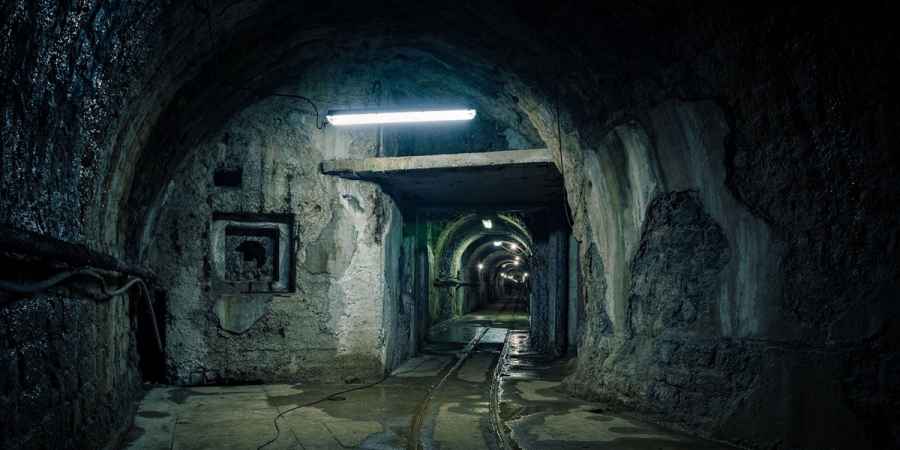
UndergroundMay 31, 2024
Dulce Base: The Secret Bunker That Doesn't Exist

ParanormalOctober 23, 2023
In The Witch's Lair: A Torch-Lit Journey Through Wookey Hole Caves
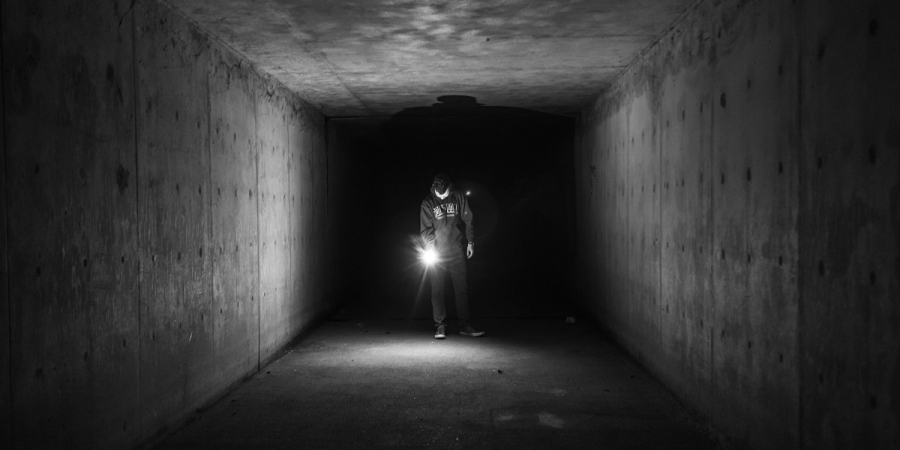
UndergroundApril 09, 2023
Supernatural Subterranea: Paranormal Tales From Dark & Forgotten Places
 See More on Audible
See More on Audible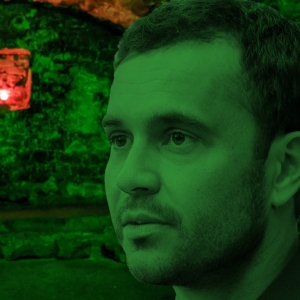
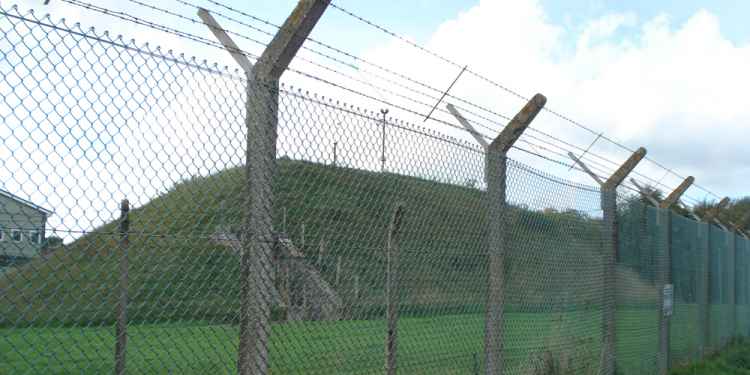

Comments
Want To Join The Conversation?
Sign in or create an account to leave a comment.
Sign In
Create Account
Account Settings
Be the first to comment.